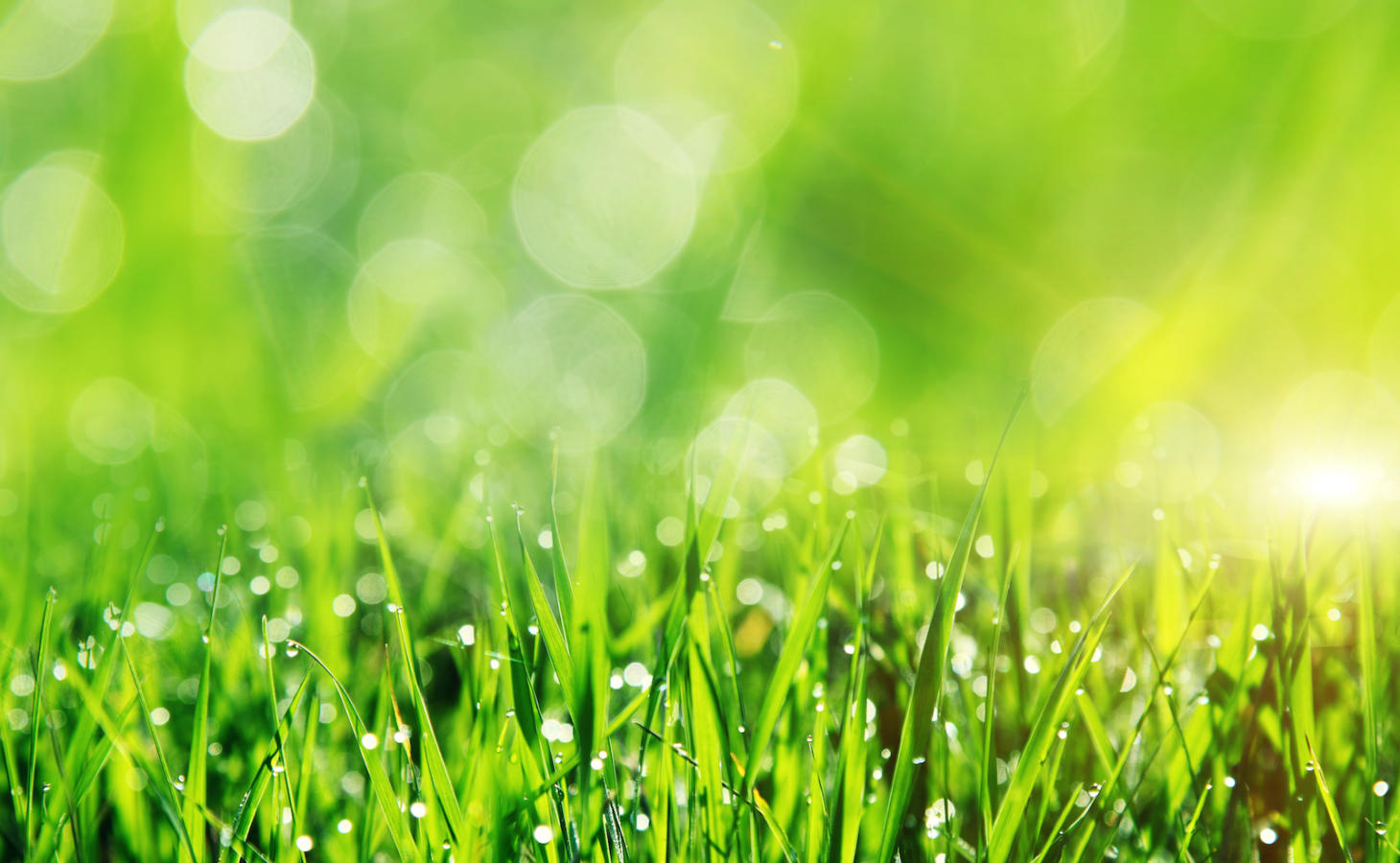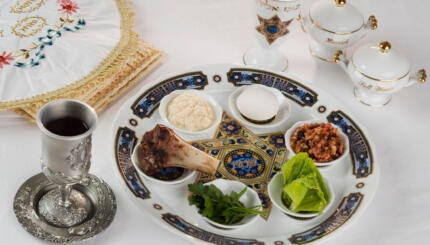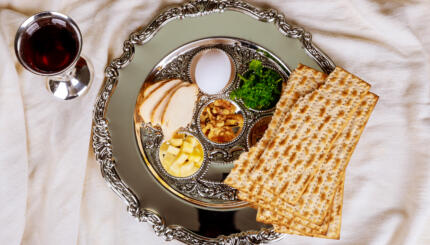Dayenu: It would have been enough for us. As this classic Passover song echoes in our ears morning after the first seder, many Jews will make their way to a prayer service that includes Tefillat Tal, the Prayer for Dew. While the seder-favorite Dayenu looks back in gratitude for historical miracles, the prayer for dew looks forward. In asking for something as small and nearly invisible as dew, we declare: May this be enough for us.
Jewish liturgy slices the year into two seasons — summer, which is dry, and winter, which is wet. The poetry we recite when the seasons change indicates what is coming. On Sukkot, we pray for the coming rainy season. But on Passover, with the dry season beginning, we pray for the blessing of dew.
Praying for rain is more instinctual than praying for dew. Rain can be seen and quantified. Metaphorically, rain represents abundance and the flow of life. Who doesn’t want to pray for abundance, for sky blessings, for flow from the heavens?
But there’s something much more difficult about the prayer for dew. We are literally calling in something small, difficult to see, and often fleeting. Praying for the tiny droplets of morning dew invites us to hold on to the Dayenu outlook of enough-ness.
With your help, My Jewish Learning can provide endless opportunities for learning, connection and discovery.
Praying for dew means asking for the capacity to honor this moment and not ask for anything else. What would it look like to stop pushing away the present moment, hoping the next will be more fulfilling? What would it look like to live with a mindset of sufficiency, to allow ourselves to do more with less?
Listen to Cantor Basya Schechter’s rendition of Tefillat Tal here:
So much of our society defines thriving as acquisition: more money, more possessions, more titles, more education. And yet, as we learn from palliative caregivers, those at the end of life most regret things like overworking or not expressing feelings of love and joy often enough. Dew reminds us that huge life achievements are not the best measurement of happiness.
Dew seems insignificant, but it’s actually able to sustain life itself. For centuries, desert dwellers have known that wool can absorb enough dew from the rocks to harvest for the day’s water. Farmers can divert dew collected in moss to water their crops. What other blessings are within our reach, yet unnoticed?
As we transition the seasons, it’s an opportune moment to focus on honoring the shift from abundance to enough-ness. As we sit with the sensation of dew, consider what forms of sufficiency we can call into our lives. What do we tell ourselves is not enough that we can still say Dayenu for?
Try sitting comfortably with eyes open. Find some dew on grass or rocks, or if it’s not early morning or late at night, dip a hand or a few fingers in some water. Watch and feel the textures and sensation of the water. How long does it take for the water to evaporate or absorb into your skin? Notice how the textures and sensations change. Notice which thoughts and feelings arise. Notice if anything changes. Is the water enough? Do you want more? Less? Breathe through it all.
As your hand becomes dry, breathe out one more time. Dew is our teacher, reminding us about the sacredness of sufficiency. May our prayers for dew be an opportunity for expressing joy, even when it is fleeting. May the ephemeral dew of spring reinvigorate our capacity for small drops of loving-kindness, toward oneself or for another. As we turn our liturgy toward the season of dew prayers, may the faith of Dayenu resound in our hearts and in our lives.



